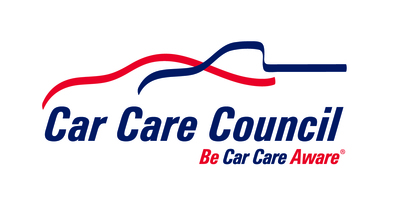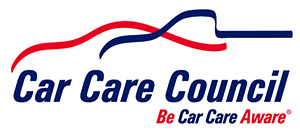BETHESDA, Md., Aug. 1, 2018 /PRNewswire/ -- A properly operating brake system is critical to safe vehicle operation and control under a variety of conditions. Brake Safety Awareness Month is the ideal time to stop and make sure your brakes are working properly before the new school year and colder temperatures arrive.

"When it comes to vehicle safety, the brake system is at the top of the list," said Rich White, executive director, Car Care Council. "Motorists can put a stop to any potential brake system problems by recognizing the signs and symptoms that their brake system may need maintenance or repair."
Brakes are a normal wear item for any car and eventually they're going to need to be replaced. If your car is pulling to the left or right, or if you hear odd noises when you apply the brakes, you should inspect your brakes. Other warning signs include an illuminated brake warning light, brake grabbing, low pedal feel, vibration, hard pedal feel and squealing.
For routine maintenance, check your vehicle's braking system at least once a year. A thorough inspection should include brake lining wear, brake fluid level, rotor thickness, condition of hoses and brake lines, brake and dash warning lights, as well as taking the car for a test drive to detect other potential brake system problems.
Several factors that affect brake wear include driving habits, operating conditions, vehicle type and the quality of the brake lining material. Never put off routine brake inspections or any needed repair, such as letting the brakes get to the "metal-to-metal" point, which can be potentially dangerous and lead to a more costly repair bill.
The Car Care Council is the source of information for the "Be Car Care Aware" consumer education campaign promoting the benefits of regular vehicle care, maintenance and repair to consumers. For the latest car care news, visit the council's online media room at http://media.carcare.org. To order a free copy of the popular Car Care Guide, visit the council's consumer education website at www.carcare.org.
SOURCE Car Care Council
